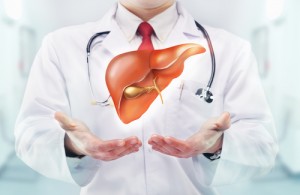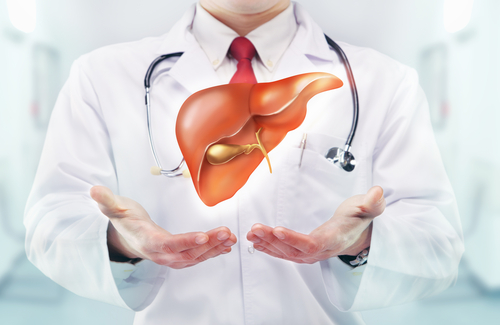 A recent study published in the New England Journal of Medicine describes the results of a new treatment regimen for hepatitis C that will transform the treatment protocols for transplant patients.
A recent study published in the New England Journal of Medicine describes the results of a new treatment regimen for hepatitis C that will transform the treatment protocols for transplant patients.
The investigational three-drug regimen for hepatitis C, the most common and frequent cause of liver cancer and transplantation, consists of an oral interferon-free therapy that produced impressive 97 percent cure rates. The usual treatment for hepatitis C after a liver transplant is an interferon-based therapy administrated for 48 weeks. This standard therapy has much lower response rates, can lead to a risk of rejection, and is poorly tolerated once it requires immunosuppressants to prevent a transplant rejection. Conversely, the new oral regimen — which includes ABT-450, ombitasvir and dasabuvir (with or without ribavirin) — has fewer side effects and it only needs to be prescribed for 24 weeks.
Paul Kwo, M.D., professor of medicine at the Indiana University School of Medicine and first author of the study considers these results a “landmark achievement,” according to a recent press release. According to Dr. Paul Kwo, cirrhosis caused by hepatitis C is the number one cause of liver transplantation in the United States. Hepatitis C patients have very low survival rates (and they have a 20 to 30 percent chance of developing recurrent cirrhosis within the next five years after transplant) in comparison to patients suffering with other types of cirrhosis.
Hepatitis C remains an asymptomatic condition until severe liver damage occurs. It is transmitted by exposure to contaminated blood, hence it is usually contracted while sharing needles and other equipment to inject drugs, or through blood transfusions, although more rarely. According to the Centers for Disease Control and Prevention, 3.2 million Americans are infected with the virus; according to the Organ Procurement and Transplantation Network, 6,400 liver transplants were performed in the United States in 2013, from which about 50 percent had hepatitis C with or without liver cancer.
In this phase 2 trial, 34 liver transplant recipients with hepatitis C that did not have cirrhosis were enrolled in the study. 97 percent of the patients had no signs of hepatitis C after 24 weeks of recieving treatment with the new drug regimen. None of the patients rejected the organ. In the phase 3 of the study, which included non-transplant patients with cirrhosis, a 96 percent cure rate was verified.
“Recurrent hepatitis C post liver transplantation has historically been difficult to treat, and we have considered post-liver-transplant patients a special population in need of new treatment strategies (…) What this study showed is that this special population is no longer special. We can treat them as successfully as if they haven’t had a liver transplant with drugs that are well tolerated and without risk of rejection,” concluded Dr. Kwo.

